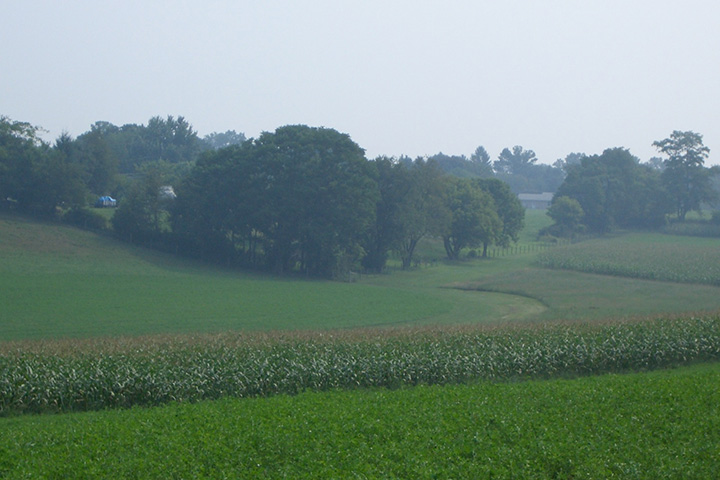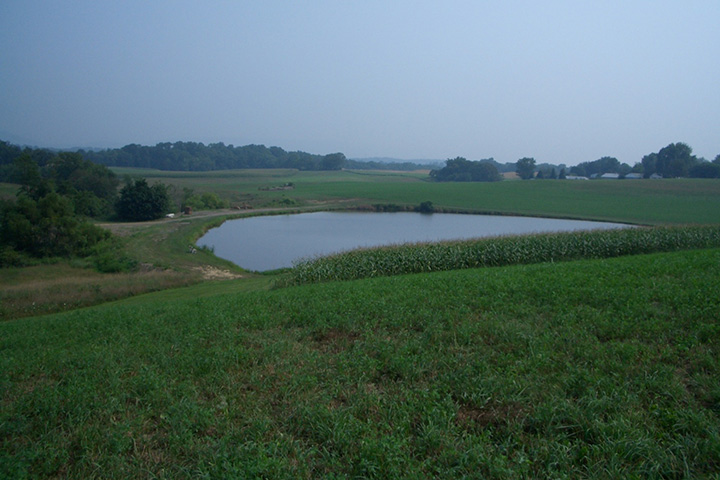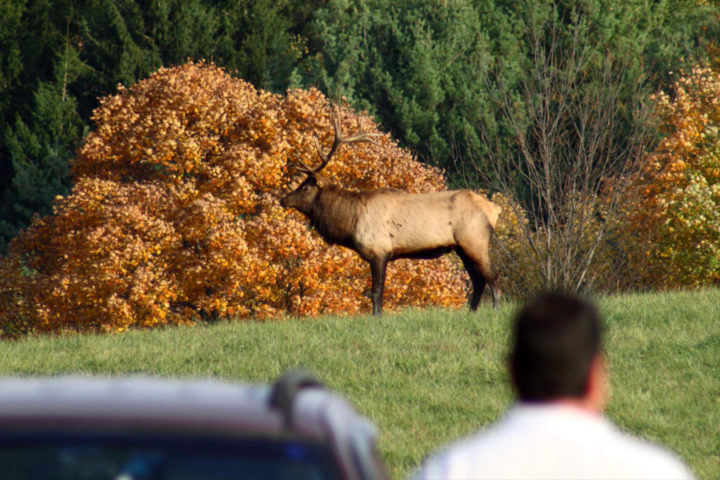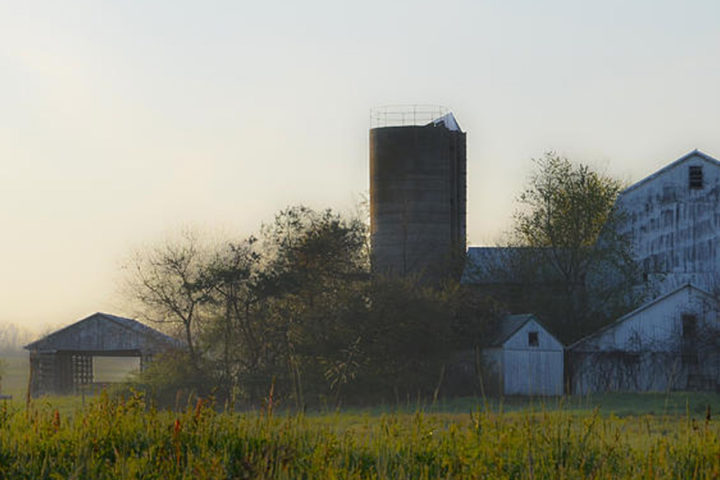Casper Kohler’s reasons for keeping his 100-acre farm intact run deeper than money. So deep that he struggles to explain why he feels his land must never be developed.
“I don’t know why I want to save it. Money, you spend it and it’s gone,” said Cap, looking perplexed at his own loss of words. “I guess you call it leaving a legacy.”
Cap’s farm was worth enough money to developers to afford him a most luxurious retirement. But when real estate agents call him, he tells them his land can’t be developed. When he hangs up, he smiles.
His farm, Kohler’s Seek No Further Farm, will always be open space.
Cap found comfort with the Manada Conservancy, a volunteer-led land trust operating in Dauphin County. He donated a conservation easement to the Conservancy after researching his options.
Just as a utility easement gives a power company the right to use a portion of someone’s land for power lines forever, a conservation easement gives the conserving organization the right to enforce the restrictions of the easement forever. Cap’s conservation easement prohibits development but allows farming and other open space uses to continue.
Benefits
Residents of West Hanover Township and those downstream on Swatara Creek benefit from Cap’s easement. His open land provides natural filtration of run off, helping to decrease flooding and pollution. Ultimately, Cap’s easement makes a contribution to improving water quality in the Susquehanna River and the Chesapeake Bay.
Brook Lenker is director of watershed stewardship for the Alliance for the Chesapeake Bay. His grandfather’s farm sat next to Cap’s. While Cap honeymooned, Brook’s father milked his cows. Brook attended West Hanover Elementary School, which borders Cap’s land to the west.
“I have a mental image of going out at recess and looking over at the farm, ” Brook said. “I think back to when I grew up fishing and camping in that stream valley. It’s nice to see that some of that valley is protected because of Casper.”
“Sportsmen who fish in the stream benefit from Cap protecting his land as the land gives the stream protection from runoff and other pollutants,” Brook said. “The riparian corridor is full of wildlife. People have better bird watching and hunting because that area is protected.”
The farm also provides scenic beauty and preserves some of the township’s original character, benefiting travelers of State Route 22 and local residents.
Because of these public benefits, Cap’s donation is considered charitable. That, coupled with the reduction in land value from giving up development potential, qualifies Cap to receive a federal income tax deduction.
Cap’s home serves as an example of the typical Pennsylvania farmhouse.
“You can travel all around West Hanover Township and you won’t see another, even though that was the dominant housing style here,” said John Conner, president of the Manada Conservancy.
At one time the farm didn’t stand out. When Cap was busy milking 35 cows and raising children, property lines seemed non-existent with fields bordered by yet more fields and forest.
Now he counts the former farms by what they have become: a school on the west, a warehouse on the south and housing developments to the east.
Cap watched as Route 22 was constructed in the 1940s. He knew the next steps would be more houses, more industry and fewer farms. Eventually, the township would ban keeping livestock in most of the municipality.
Cap’s farm is exempt from the livestock rule. It pleases Cap to know future owners can have horses, cows or goats. “I loved to farm, that’s all,” said Cap. “So many animals were born on this farm.”
Conserving the Land
The farm is no longer a dairy, but the land still produces wheat and hay. Cap leases his fields to a local farmer, who wouldn’t have land to work otherwise.
Farming is what led Cap to conserve his land. He first heard about conservation easements through the Dauphin County Agricultural Land Preservation Program. After attending meetings, conferences and reading numerous books, he found the county program, which pays farmers for easements, did not meet his needs.
“Under state law, a future owner of Kohler’s farm might make the case that for whatever reason there is no practical way to farm it,” said Bob Kristoff, resource planner for the Dauphin County Conservation District, which runs the county program. The farm could then be released from the easement restrictions contrary to Cap’s wishes and in spite of his efforts.
“The difference in the county program and private programs is what steered Cap to Manada,” Kristoff said, adding “his farm ranked low on our priority list and we wouldn’t have had funding for at least many years — if ever to preserve his farm.”
For 62 years, Cap worked to improve his land. Now in his 80s, he is still making improvements.
Cap spends his days planting young trees that his children and grandchildren will see mature. Saplings peek from tree shelters on formerly timbered hills. Their trunks, measured in inches, stand rigid against a backdrop of green meadow and blue sky while they struggle to produce young leaves in spite of years of drought.
On one of the farm’s many gentle hills, Cap’s circa 18th century farmhouse shines. It was sided a few years ago, he said, keeping the brick home cozy in winter. The entire property is neatly fenced, containing Lexus, Cap’s playful, yet graying dog.
Cap’s 100 acres will always be a green oasis in a sea of suburban humdrum. A few days after meeting with this writer, Cap called.
“I was walking around the farm yesterday and I realize that I want to leave a speck on this earth better than I found it,” he said. “In my mind’s eye, I see what this farm looked like 62 years ago. I tried to make it better and I believe I did.”







